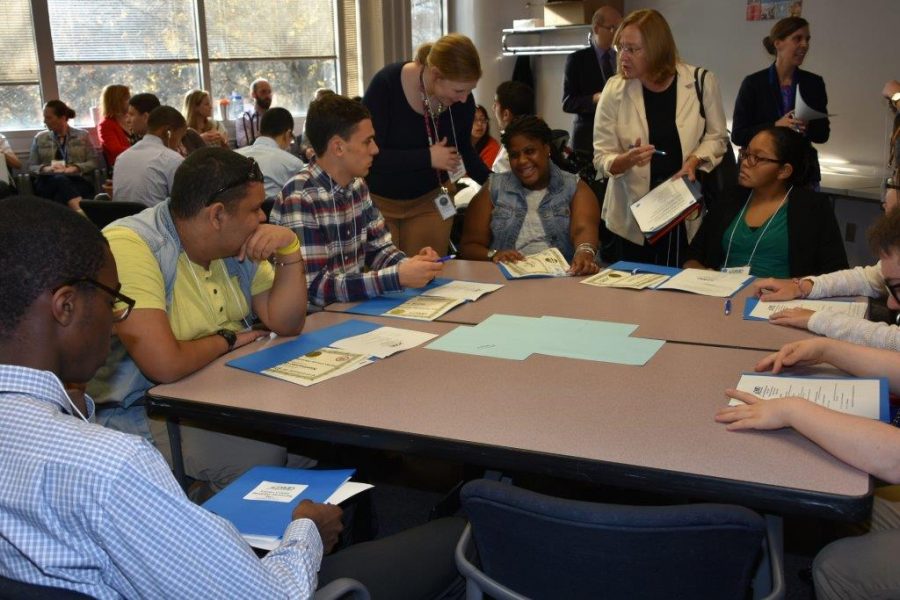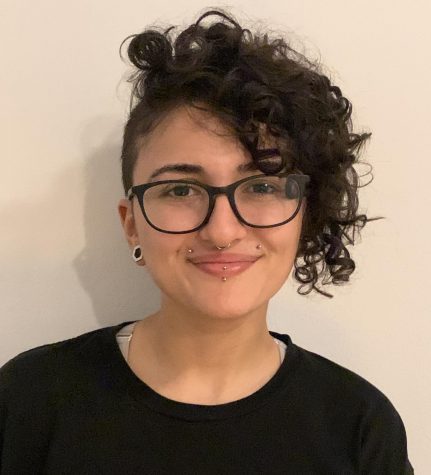Accommodating the Pandemic
Learning specialist discusses how COVID-19 has impacted students with disabilities
GCC’s students with disabilities are often overlooked, especially in these unprecedented times, but Ellen Oppenberg and her team at Accomodations Resource Center won’t look away.
Many of us are struggling with remote learning. Whether it’s due to issues with technology, a struggle to engage with one’s professor on a screen, or the fact that schoolwork and home life are so intertwined now; some degree of difficulty is to be expected for the average student. However, remote learning has put many disabled students at a great disadvantage, and unfortunately, this group of students is frequently forgotten even though they require the most support.
The sect of student services in charge of bridging the equity gap for disabled students is the Disabled Students Programs and Services. As far as how they actually bridge this gap in GCC’s classrooms, we can thank the Accommodations Resource Center. ARC, (formerly known as the HTC and IAC centers, respectively) is dedicated to accommodating students with any type of disability, including physical, mental, and learning disabilities. This office is armed with one full-time learning specialist, two academic tutors for Math and English, two employees dedicated to test proctoring, technology specialists, and an alternate media specialist who can transform assignments into more accessible formats. ARC serves around 300 disabled students. Ellen Oppenberg is the one full-time learning specialist.
Professor Oppenberg is the heart of the Disabled Students Programs and Services, and her work in the Accommodations Resource Center isn’t usually what comes to mind when people hear her name. Most students and faculty know her as the coordinator for the now-mobile Food for Thought Pantry, which has been hard at work providing free food to students who are struggling financially, despite the social limitations of the pandemic. However, her true passion lies in ARC, where she manages a hefty workload. Her and her team serve over 300 students, and her dedication allows students with disabilities to thrive at GCC, even in the uncharted territory of online learning.
In a pandemic-free world, Oppenberg would hold in-person meetings with her students and discuss what accommodations and other resources they would need for their classes. This can mean extended time for tests and assignments or access to a room with limited distractions during test-taking, and two test proctors manage the communication between students and professors for that. Other accommodations may include interpreters, one-on-one tutoring, and priority registration. ARC also serves as the liaison for students to discuss how their accommodations are received in their classrooms by their professors. Finally, the alt-media specialist could translate readings into audible versions or books into braille for blind students.
El Vaquero had the opportunity to speak to Professor Oppenberg about how the pandemic has changed ARC, and how its office is managing despite inevitable physical limitations.
According to GCC’s website, ARC’s physical office is closed. Regardless, its work is being completed remotely, and that in itself is a big challenge for this office. Oppenberg states that the biggest challenge that disabled students are facing lies in technology, and the rate at which students who are unfamiliar with technology must cope. To try and assist, Oppenberg states “If they’re having trouble with Canvas or their readings, we come up with technology that can assist them”. There is no way around this hurdle, which disproportionately affects students who are older or whose learning styles are incompatible with education through a screen.
In the first four weeks of quarantine, Oppenberg spoke to 125 students to check in with them and ask them what resources they may need, ranging from technology loans all the way to whether they had food in their refrigerator. After all, anxiety is a huge part of quarantine for all of us, and Oppenberg opened her metaphorical doors for her students who needed resources. But what about students who are suspecting they may have a learning disability now, and who don’t have prior documentation of one from their high school records or health care practitioner? The learning specialists at ARC used to be able to evaluate these students for free, allowing them to avoid the costly or delayed process of accessing an evaluation from a doctor.
“I know that on the open market, [Learning Disability] tests are a very expensive item,” explained Oppenberg, sharing her understanding. With a population of 10,971 students receiving financial aid as of 2018-2019, the price tag may serve as too big of a deterrent for students who may have a learning disability to access the gamut of accommodations they may be entitled to at GCC.
Evaluations for incoming students who may or may not have a learning disability are now a point of contention among Learning Disability experts in Community Colleges and CSUs. Should evaluations continue? If so, what is the best way to do them? Some colleges are beginning to offer them online, but Oppenberg explains, “That’s not the way L.D. tests were normed. That is not the way they were supposed to be delivered. We have made the decision at our college to not do L.D. Assessments.”
Luckily, not all hope is gone for these struggling students, because Oppenberg understands there is still a need to provide assistance regardless of physical limitations. She offers, “If a student feels that they are having academic issues, what I’m encouraging students to do is email me and let me know. I can talk them through things, and I can do a virtual intake.” And with that, Oppenberg proves that she won’t turn any students away.
“I’ve been doing this a very long time, and I know by talking to a student what their issue might be before they even know themselves.”
The director of the Disabled Students Programs and Services, Tina Andersen-Wahlberg, could not be reached for comment.
Professor Ellen Oppenberg can be reached at: [email protected]
Manifa Baghomian can be reached at: [email protected]


